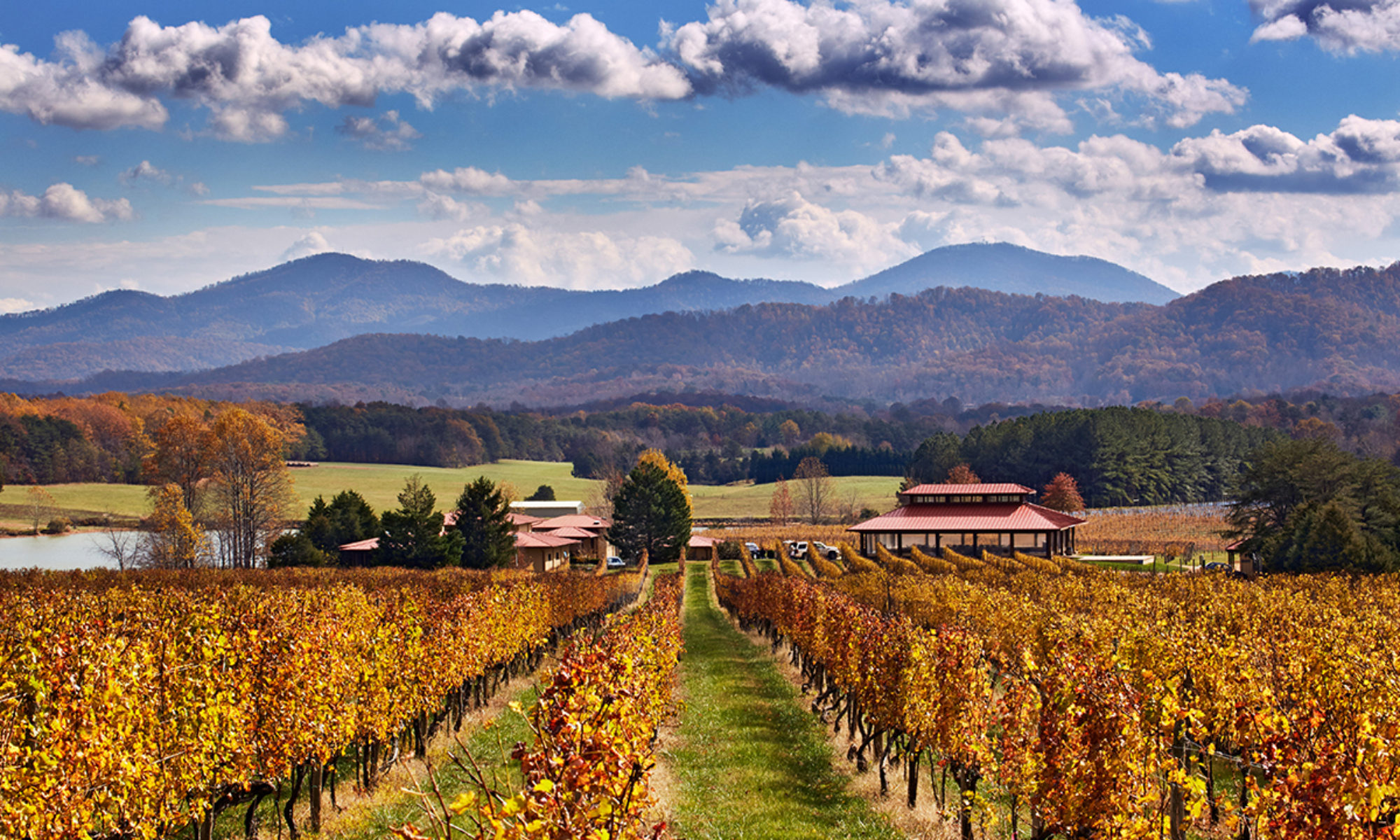Located in Keswick, Albemarle County, north of Interstate-64 and some 12 miles east of Charlottesville. Natives of England, owners Guy and Elizabeth Pelly add to the international flavor of Virginia’s growing winery business. They purchased mid-19th century Merrie Mill Farm in 2018, and planted the 12-acre vineyard shortly thereafter. With luck 2022 will be the first vintage, and in the meantime the winemaker is bringing in wine from elsewhere in Monticello.
Wine: Tier II. Merrie Mill Farm’s estate-produced wines have yet to make an appearance, so when visiting one will be served True Heritage label wines. True Heritage is a venture of Emily and George Hodson: Emily is the long-time winemaker at highly-awarded Monticello area winery Veritas Vineyards, and will be Merrie Mill’s first winemaker as well. As of late 2021, Petit Verdot, Viognier, and a pair of white and red blends are available.
Setting: The tasting room, where there was an old tractor barn, and interior of the Farmhouse have the feel of an art and curio gallery. The gentleman staring from his portrait at visitors as they enter the main room is John Pell, the great-grandfather of owner Guy Pell. Interior decoration is highly varied, including stuffed animals and a porcelain alligator. Back in the day, the farm apparently included a dance pavilion, and the first public pool and first movie theater in the region. Food platters and desserts are available for purchase to enjoy with the wine. This is a family-friendly winery, and dogs are also welcome outdoors on the property.
Stories. The Blessing of the Hounds (Fox Hunting in Virginia). Centuries ago in England, foxes were considered nuisances because they killed small livestock and chickens, so farmers would hunt them down with hounds. Over time, the pursuit became gentrified, with highly detailed and very English rules governing the hunt, and colonial-era planters brought the passion with them to Virginia. Early settlers brought hounds of various types from Britain, France and Ireland, and, by 1900, the American foxhound was a breed of its own. Today, while foxes are far more likely to be seen as cute than as nuisances, the hunt goes on – and in Virginia more than anywhere else in the USA. Virginia boasts 25 individual hunt clubs, more than the number in any other state. The oldest fox hunting club in the United States is the Piedmont Hunt, based in Middleburg and founded in 1840. Middleburg-based Masters of Foxhounds Association (MFHA) of North America serves as the governing body of organized foxhunting in the U.S. and Canada with a mission of promoting and preserving the sport and maintaining proper standards of conduct. These codes of conduct emphasize good horsemanship, camaraderie, and an appreciation of the outdoors in this seek-and-chase sport involving horse, rider, and hound. Regular hunts can last from one to several hours, typically have 40-60 hounds, and on average 50-80 riders. There’s a huntsman, professional whipper-in, and maybe a few other whips who control the hounds. Masters (MFH) lead the hunt. Virginia fox hunting has a long history, and continues to be an important cultural traditional and social event today. While the original intention was to actually hunt a red fox, the modern sport is much more about enjoying a good horse, good company, and traveling across beautiful lands. The fox typically outfoxes the hunters for some time, and these days generally are allowed to escape at the end in any case, as the hunters have no interest in there being fewer foxes in the future. Here near Merrie Mill Farm, the Keswick Hunt Club – established in 1896 — promotes organized hunts from September to March. Invited guests and junior riders are encouraged to join the hunts on land in Albemarle, Louisa, Madison and Orange counties (and trail rides during the non-hunting season). Keswick also hosts one of the more endearing traditions related to the fox hunting in Virginia: the Blessing of the Hounds. In 1929, John Stewart instigated the first Thanksgiving Blessing of the Hounds Service in the yard of Grace Episcopal Church, a tradition that has continued to the present. Hounds, horses and riders gather for a religious service of prayers and hymns followed by a hunt.
